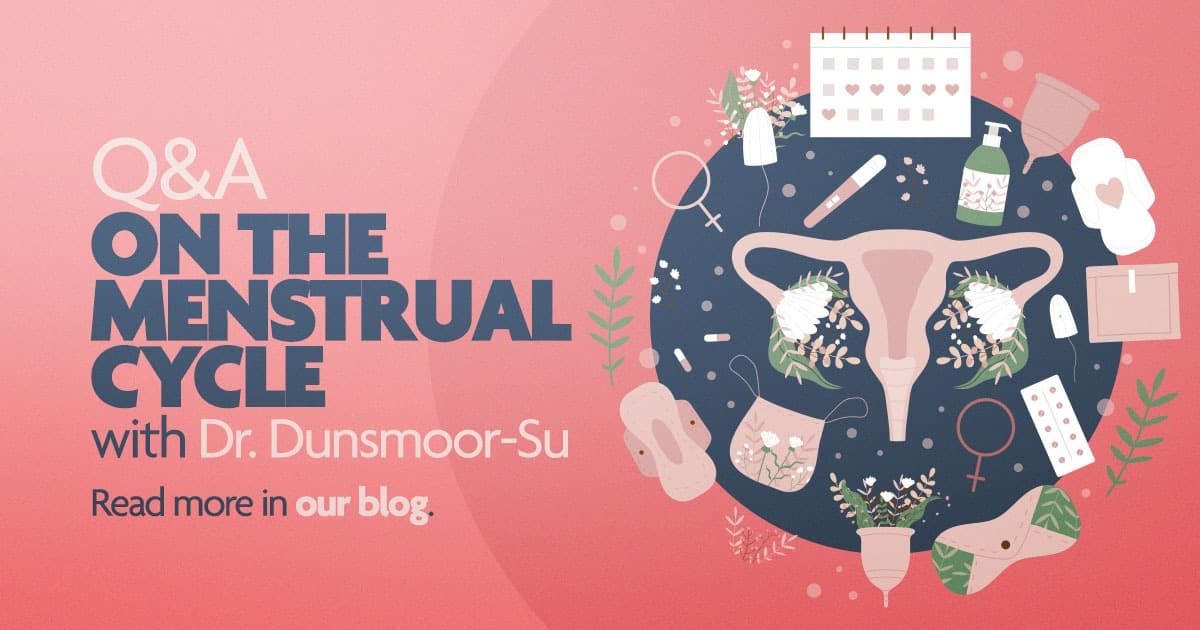For women, our menstrual cycle is just another aspect of life. It’s something we’ve come to accept as a normal part of our bodies, and we may not give it much thought beyond that. But when you think about it, our menstrual cycle is actually quite remarkable and well, intense. We asked the amazing Dr. Dunsmoor-Su (Co. Medical Director at Seattle Clinical Research Center) some relevant questions regarding the menstrual cycle and its stages that women everywhere can benefit from. Read more about the menstrual cycle stages in our conversation with Dr. Dunsmoor-Su!
What is considered a “normal” menstrual cycle?
Dr. Dunsmoor-Su: We count the menstrual cycle as starting on day 1 of your period and ending with the start of the next. A normal or usual cycle can vary anywhere between 21 to 35 days and be considered “normal”. Every woman is a little different, but generally the most common timing is 25-28 days.
Should you feel different as you go through different phases of a menstrual cycle?
Dr. Dunsmoor-Su: Women can be more or less sensitive to hormonal changes during their cycle. Women who experience mood changes (good or bad) typically see these changes within the second half of their cycle, when leading to their period. This occurs as this is when progesterone gets high and then falls off to commence the period. Physically some women feel they have more energy in the earlier part of the cycle.

With trends such as cycle-syncing, which includes diets and exercises centering around one’s menstrual cycle phase, should women act/treat their body differently according to the phases of their cycle?
Dr. Dunsmoor-Su: No, frankly this question disturbs me as a woman. While our cycle is part of our physiology, and we should recognize that, we as women are more than our hormones. We are strong and capable throughout our cycles and don’t need to alter things based around them. You may feel a little different doing the same thing at different times, but that doesn’t mean we need to manage our lives and exercise regimens in accordance with our menses. Now, if you are finding yourself severely impacted by hormonal changes, this is not to be ignored. I highly advise seeing an OBGYN to discuss the best options.
Does birth control affect your menstrual cycle and hormones?
Dr. Dunsmoor-Su: If you’re talking about systemic hormones such as birth control pills, the answer is yes. In a “normal” cycle you have a spike of estrogen early on to grow an egg. Then, mid-cycle that egg releases. Creating a spike of progesterone meant to prepare for pregnancy. If pregnancy doesn’t happen, both the estrogen and progesterone fall and the blood you know well occurs. On birth control, you take the same low dose of estrogen and progesterone every day, preventing the ovaries from being stimulated to make an egg. No spikes, no “cycle”. We have you stop the pills once every 1-3 months to empty any lining built up from the uterus. However, this is an artificial period of sorts. Intrauterine devices (IUD) work differently, by not allowing the sperm and egg to meet. As well as, keeping pregnancy from implanting if they do. However, they do not impact your cycle, not even the hormonal ones. Hormonal IUD’s don’t allow much lining to grow in the uterus so you may not see your period, but the hormones are still cycling.
We hope you found our discussion about the menstrual cycle stages in our conversation with Dr. Dunsmoor-Su insightful.

At Seattle Clinical Research Center, we have multiple birth control studies currently enrolling! For further details on study specifics contact us at (206) 522 – 3330 extension 2 or visit our website.

